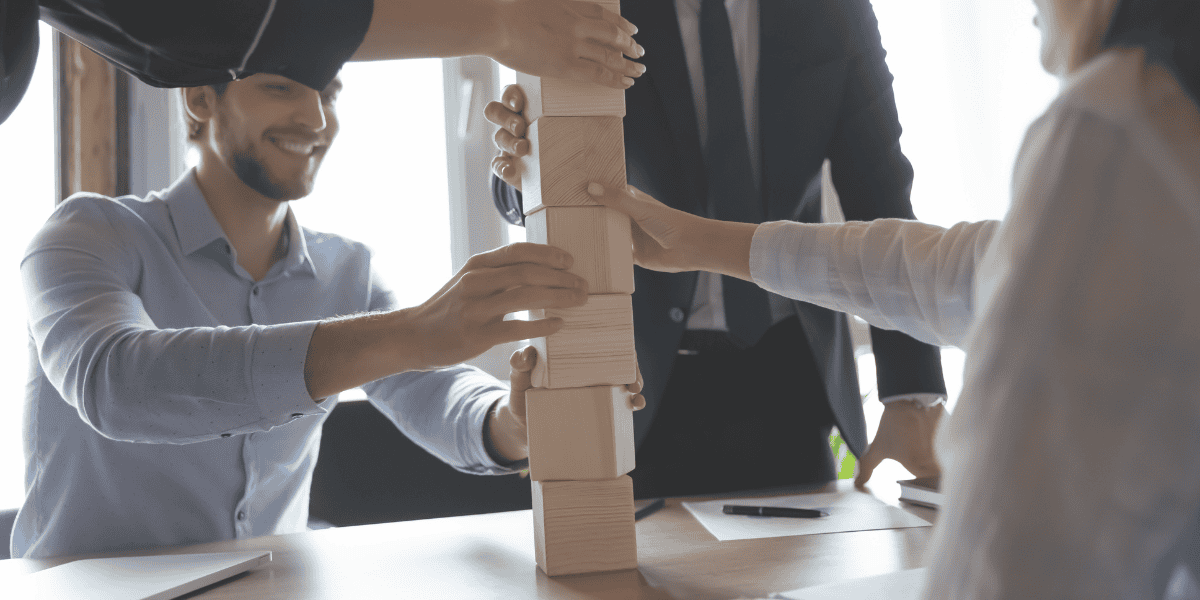Team building refers to the structured process of improving team effectiveness, collaboration, and cohesion through various activities, exercises, and interventions designed to enhance communication, trust, problem-solving abilities, and interpersonal relationships among team members. These activities can range from structured workshops and outdoor adventures to informal social gatherings and virtual challenges, all aimed at helping teams work more effectively while understanding each other’s strengths, weaknesses, and working styles.
It is important because effective team building leads to increased productivity, improved morale, better communication, reduced conflicts, enhanced creativity, more robust employee engagement, lower turnover rates, and ultimately better organizational performance. When teams work well together, they can achieve more than individuals working independently, leading to improved problem-solving capabilities, increased innovation, better decision-making, and a more positive work environment that benefits both the employees and the organization.
Team Building
What is the Focus of Team Building?
Team building in Malaysia focuses on developing cohesive work relationships while considering local cultural dynamics, diverse workplace environments, and organizational hierarchies. The program emphasizes building strong team connections through activities that respect Malaysian cultural values and promote inclusive collaboration.
Training incorporates elements of Malaysian workplace culture, including respect for hierarchy, maintaining harmony, and fostering a ‘gotong-royong’ (cooperation) spirit within teams. Special attention is given to creating activities that bridge cultural differences and strengthen workplace relationships.
Who Should Participate In Team Building?
All levels of employees from various departments within Malaysian organizations, including management teams, project groups, and departmental staff, should participate in team-building activities. This includes new and existing teams seeking to enhance their collaboration and performance.
Team building is particularly valuable for organizations with diverse workforces. It helps to bridge cultural gaps and strengthen cross-functional relationships within Malaysian workplace settings.
What Are The Core Cultural Considerations?
Team building activities are designed to respect Malaysian cultural sensitivities, including religious considerations, dietary requirements, and appropriate interaction protocols. Programs incorporate activities that promote understanding and appreciation of different cultural backgrounds.
Particular emphasis is placed on creating inclusive environments that celebrate Malaysia’s multicultural workforce while maintaining professional boundaries and respect for individual differences.
How Are Communication Skills Enhanced?
Activities focus on developing effective communication patterns, including verbal and nonverbal communication skills, within Malaysian workplace contexts. Participants learn to navigate cultural communication differences and create clear channels of understanding.
The program emphasizes building open communication while respecting hierarchical structures common in Malaysian organizations and maintaining appropriate professional relationships.
What Leadership Development Activities Are Included?
Team building incorporates leadership development elements suitable for Malaysian organizational contexts, including situational leadership exercises and decision-making scenarios. Activities help identify and nurture leadership potential within teams.
The special focus is developing collaborative leadership styles aligning with Malaysian workplace values and organizational objectives.
How Is Trust Building Addressed?
Activities are designed to build trust and mutual understanding among team members while considering Malaysian workplace dynamics. Participants engage in exercises that promote transparency, reliability, and mutual support within teams.
The program emphasizes creating psychological safety within teams while maintaining professional relationships appropriate to Malaysian workplace culture.
What Problem-Solving Activities Are Featured?
Team building includes problem-solving exercises that encourage collaborative thinking and creative solutions in Malaysian workplaces. Activities challenge teams to work together effectively while respecting diverse perspectives and approaches.
Special attention is given to developing problem-solving skills that can be applied to real workplace scenarios common in Malaysian organizations.
How Is Cross-Cultural Integration Managed?
Activities focus on promoting cross-cultural understanding and integration within Malaysian teams. Participants learn to leverage cultural diversity as a strength while building cohesive working relationships.
The program emphasizes creating inclusive team environments that celebrate cultural differences while maintaining unity and shared organizational goals.
What Team Motivation Techniques Are Developed?
Team building incorporates motivation strategies suitable for Malaysian workplace contexts, including recognition activities and achievement celebrations that align with local cultural values. Programs help teams identify and build on shared motivational factors.
Special focus is on developing sustainable motivation approaches that resonate with diverse team members and support long-term team engagement.
How Is Conflict Resolution Handled?
Activities address conflict resolution skills appropriate for Malaysian workplace environments, including harmonious problem-solving approaches and maintaining professional relationships during disagreements. Participants learn culturally proper ways to address and resolve team conflicts.
The program emphasizes developing conflict resolution skills that maintain team harmony while effectively addressing workplace challenges.
What Team Performance Activities Are Included?
Team building focuses on activities that enhance team performance and productivity within Malaysian organizational contexts. Programs include exercises that improve collaboration, efficiency, and team coordination.
Special attention is given to developing performance improvement strategies that align with Malaysian workplace practices and organizational objectives.
How Is Virtual Team Building Managed?
Activities are adapted for virtual and hybrid team environments, considering Malaysian organisations’ increasing remote work trend. Programs include online team-building exercises and digital collaboration activities.
The program emphasizes maintaining team connections and engagement in virtual settings while respecting work-life boundaries in Malaysian contexts.
What Sustainability Elements Are Addressed?
Team building incorporates sustainable team development approaches that promote long-term team effectiveness in Malaysian organizations. Activities focus on building lasting team relationships and maintaining positive team dynamics.
Special focus is developing ongoing team development strategies that support continuous improvement and team growth within Malaysian workplace settings.
Is Team Building Considered A Component Of Corporate Training?
Yes, team building is a component of corporate training, because it focuses on developing collaborative skills, improving communication, enhancing trust between team members, and fostering a more cohesive workplace culture.
Professional development programs incorporate team building activities alongside technical training to create a well-rounded approach that addresses both hard and soft skills necessary for organizational success.

